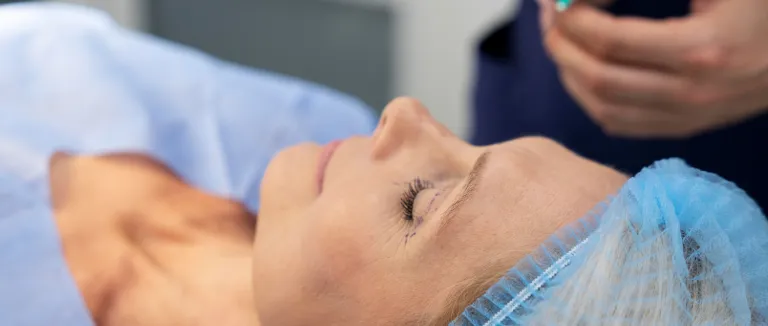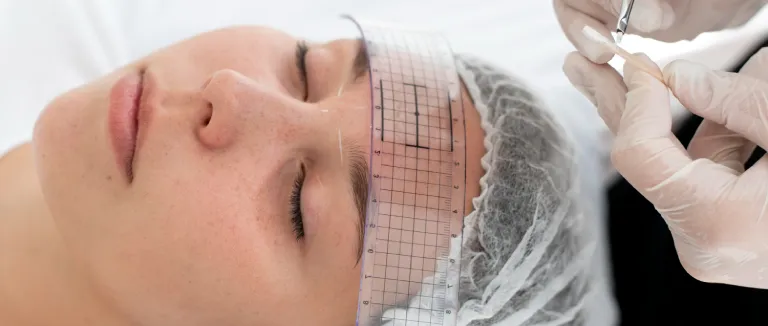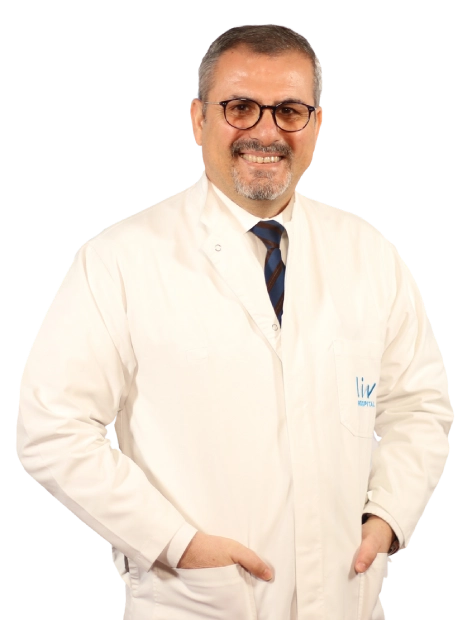What is Cellular Rejuvenation?
Cellular rejuvenation is the process of restoring aged or damaged cells so they function as if they were young and healthy. The primary goal is to reverse cellular aging and revive cells' natural abilities. Over time, our cells lose their capacity to divide, become damaged, and are less able to perform essential functions”effects we recognize as signs of aging. Cellular rejuvenation uses targeted interventions to reverse these processes, transforming or renewing old or impaired cells into ones that are youthful, healthy, and functional again. By utilizing advanced stem cells derived from umbilical cord tissue along with exosome therapies, this process:
Promotes tissue repair and regeneration
Reduces inflammation
Slows the aging process
Helps prevent age-related diseases such as Alzheimer's disease and cardiovascular conditions.

Longevity Treatments: Personalized for Your Wellness
Liv Hospital's Longevity Treatment Program takes a holistic approach to enhance both physical and mental vitality. The program features key components such as:
- Personalized nutrition plans to meet your unique needs
- Structured exercise routines for optimal fitness
- Sleep optimization strategies for restorative rest
- Stress management techniques to enhance mental well-being
Comprehensive diagnostic assessments and personalized health solutions ensure that all aspects of your age-related concerns are thoroughly addressed.
The Cellular Rejuvenation Process
Cellular rejuvenation relies on several key mechanisms, including telomere elongation, DNA repair and renewal, epigenetic modifications, stimulation of mitosis and cell division, maintenance of proteostasis, and mitophagy. Extending telomeres enables cells to divide more frequently, while DNA repair and renewal maintain the integrity of genetic material. Epigenetic modifications reverse age-related shifts in gene expression, and stimulating mitosis and cell division helps generate youthful, functional cells. Proteostasis keeps cellular proteins working properly, and mitophagy removes and renews damaged cell components, all of which enhance overall cell health and function.
Strong Anti-Aging Effect
Questions such as "Will aging ever stop?, "What is the secret to a long and healthy life?, and "Can we remain forever young? are increasingly common. People everywhere, regardless of gender, are eager to pause the aging process and preserve a youthful, healthy body, mind, and spirit. However, as we get older, the signs of aging become apparent both physically and mentally, and the body's ability to repair tissue slows down. For the past 20 years, exosomes derived from cellular therapies have demonstrated powerful anti-aging effects. Used in treatments ranging from skin rejuvenation and wound healing to spinal cord injury, exosomes are now seen as a promising key to youthfulness.

What is Cellular Aging?
Most diseases do not develop overnight; instead, cellular degradation happens gradually over months or even years, often without immediately impairing the affected organ's function. To help prevent future illnesses, it's important to maintain cellular health by following a healthy lifestyle, consuming proper nutrition, and considering appropriate supplements.
- The World Health Organization categorizes ages as follows: 45-59 years as middle age, 60-74 years as elderly, 75-89 years as senility, and 90 years and older as advanced old age. Biological aging happens as gradual damage builds up in cells and tissues throughout the body.
- Unlike chronological age”which is simply your age in years”biological aging depends on factors beyond your birthdate. Cellular aging involves DNA damage, telomere shortening, and cellular stress. Stem cell renewal naturally helps maintain youthfulness by replacing old or damaged cells with new, healthy ones. This ongoing renewal process keeps the body vibrant and youthful, slows aging, and supports overall health..
What Do Exosomes Do in the Body?
Exosomes are natural vesicles, measuring 50-200 nanometers, that are released by cells into the surrounding environment. They serve as a critical communication network within the body, facilitating the exchange of signals and materials between cells. Exosomes play key roles in transporting substances, activating the immune system, and, most importantly, promoting the healing of damaged tissues.
Effects on Skin Rejuvenation
Exosomes are used to treat age-related skin concerns such as wrinkles, pigmentation, and dullness. Once applied, they activate in targeted areas to stimulate collagen and elastin production and repair the skin's damaged protein structures. Exosomes display strong anti-aging properties, helping to rejuvenate tissue, strengthen the skin, restore lost elasticity and firmness, and support cellular regeneration to recover features lost with aging.
How Are Exosomes Produced?
The production of exosomes is a complex and sensitive process requiring specialized laboratory conditions. Mesenchymal stem cells from the umbilical cord are cultured in cGMP (current Good Manufacturing Practices) laboratories. Once the cells reach a sufficient number, they are subjected to stress through various methods to produce exosomes. The resulting exosomes undergo purification processes to become the final product and are stored as a sterile suspension in a cold chain.
The effects and immune responses should be monitored individually and applied only in reputable centers. Exosomes produced in LivMedCell Regenerative Medicine Stem Cell Center's cGMP-approved laboratories are tested through 10 different quality and characterization tests before application.
Areas of Application
- Acute Lung Injury
- Skin Rejuvenation
- Pigmentation Disorders
- Graft-versus-Host Disease (GvHD)
- Hair Loss
- Spinal Cord Injury
- Duchenne Muscular Dystrophy
- Immune Modulation (T and B Cell Regulation)
- Wound Healing
- Photoaging
- Atopic Dermatitis (AD)
- Osteoarthritis (OA)
Advantages of the Treatment
- Exosomes target specific cells using specialized signaling and biomolecules.
- Their fine membrane enables easy transport to various tissues and organs.
- They accelerate tissue repair and promote faster healing.
- Due to their small size (50 to 200 nanometers), exosomes can easily cross the blood-brain barrier.
Cellular Rejuvenation Package
- Comprehensive health check-up
- Exosome therapy
- 1“3 intravenous sessions (administered every 5 days over a 15-day period)
- Manual therapy treatments
- Customized dietary programs
- Accommodation in Istanbul, including a Bosphorus tour and a visit to the Basilica Cistern
Why Choose Liv Hospital for Cellular Rejuvenation?
Since 2014, Liv Hospital has led the way in regenerative medicine. Our GMP-certified stem cell production center upholds the highest international standards, prioritizing both the safety and efficacy of our treatments. Supported by a team of expert physicians, cutting-edge technology, and a patient-centered approach, Liv Hospital is committed to helping you achieve a healthier and more vibrant life.
* Liv Hospital Editorial Board has contributed to the publication of this content .
* Contents of this page is for informational purposes only. Please consult your doctor for diagnosis and treatment. The content of this page does not include information on medicinal health care at Liv Hospital .
For more information about our academic and training initiatives, visit Liv Hospital Academy
Frequently Asked Questions
What is cellular rejuvenation?
Cellular rejuvenation is the process of restoring aged or damaged cells so they function as if they were young and healthy again, using advanced regenerative medicine methods.
How does cellular rejuvenation work?
It works by stimulating natural repair mechanisms in the body through stem cells and exosomes that help restore cell vitality, improve tissue health, and slow aging.
What role do stem cells play in cellular rejuvenation?
Stem cells derived from umbilical cord tissue or the patient’s own tissues can transform into new, functional cells that replace damaged ones and support long-term regeneration.
What are exosomes and why are they important?
Exosomes are tiny vesicles released by cells that carry proteins, RNA, and signaling molecules to promote cell communication, tissue repair, and regeneration.
How are exosomes produced at Liv Hospital?
At LivMedCell Regenerative Medicine and Stem Cell Center, exosomes are produced from mesenchymal stem cells in cGMP-certified laboratories under strict quality control and safety standards.
What conditions can benefit from exosome therapy?
Exosome therapy may be used for skin rejuvenation, hair loss, wound healing, spinal cord injury, osteoarthritis, immune modulation, and other regenerative applications.
Is cellular rejuvenation the same as anti-aging treatment?
Cellular rejuvenation goes beyond cosmetic results by improving cellular health and function, helping to slow biological aging from the inside out.
Are cellular rejuvenation and exosome therapies safe?
All applications at Liv Hospital follow Ministry of Health regulations and international safety protocols, and every product undergoes extensive quality and purity testing.
What is included in Liv Hospital’s Cellular Rejuvenation Package?
The package includes a full health check-up, exosome therapy sessions, manual therapy, personalized nutrition programs, and complementary wellness experiences.
Why choose Liv Hospital for cellular rejuvenation?
Liv Hospital has been a leader in regenerative medicine since 2014, offering GMP-certified production, expert medical supervision, and innovative stem cell and exosome treatments.


